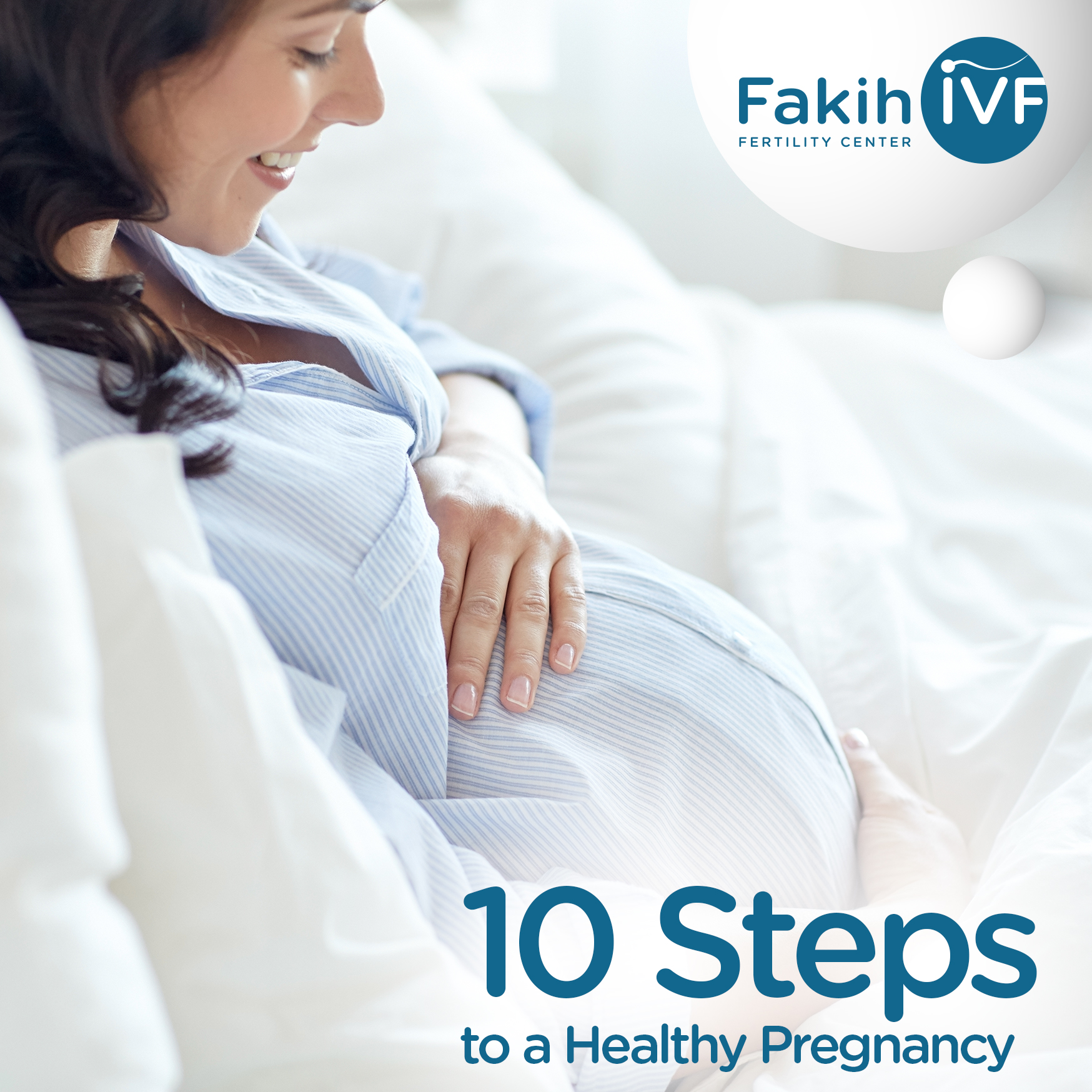The 10 Essential Steps to a Healthy Pregnancy
Wednesday, March 22, 2017
 1- PLAN AHEAD
1- PLAN AHEAD
“Start getting healthy even before you are pregnant,” On your must-do-first list should be taking a daily multivitamin, with at least 400 micrograms of folic acid, a B group vitamin that helps prevent neural tube defects; quit smoking, alcohol and/or recreational drugs.
Schedule a preconception checkup, let your doctor review your medications for pregnancy safety; get a check for sexually transmitted infections; make sure your immunizations are up to date; and have your medical problems properly treated, if there are any.
2- SURROUND YOURSELF WITH SUPPORT
Practical and emotional support can be crucial in helping you stay healthy, avoid anxiety and depression. Your circle could include your partner, family members, friends, coworkers or your doctor.
3- FIND THE RIGHT PRACTITIONER
“Choose someone who respects you and sees birth as a healthy process and not a disease,” An OB-GYN who also respects your opinions and choices, explains things in detail, gives you time and availability, can guide you through pregnancy smoothly.
4- KNOW THE RED FLAGS
During pregnancy, seemingly mild symptoms may signal something serious; so if you experience dizziness, shortness of breath, rapid heartbeat, vomiting, uterine cramping, gripping backache, leaking amniotic fluid, vaginal bleeding, urinary pain /burning, blurry vision, pronounced swelling or decreased fetal activity you need to contact your doctor immediately.
5- EAT WELL (BUT NOT FOR TWO)
Pregnancy is the time to make every calorie count. Foods rich in protein, vitamins, minerals, folate and iron will nourish you and your baby. High-fiber foods and drinking plenty of water can help prevent constipation. Eating four or five mini-meals a day can help prevent heartburn and keep your blood-sugar levels steady and prevent binging.
Avoid foods that can be dangerous during pregnancy; undercooked meats, cold cuts; raw seafood; raw /undercooked eggs; unpasteurized soft cheeses; and large fish. Also, limit your caffeine consumption to about 12 ounces.
6- GET MOVING
According to the American College of Obstetricians and Gynecologists, pregnant women should exercise a minimum of 30 minutes a day, six or seven days a week, unless they have medical reasons not to do so. Regular stretching and exercise can relieve backaches, constipation and morning sickness. Plus, having a strong heart and lungs will help you get through your upcoming marathon: giving birth.
7- STAY SAFE
Buy yourself a good pair of shoes to prevent falls. Pregnancy makes you susceptible to infections, so it’s best to avoid extremely crowded and unhygienic places. Get a flu shot done to prevent the flu.
8- GO GREEN
Minimize your exposure to chemicals, including household cleaners, solvents, paints and beauty products. Avoid lead dust generated during renovations in older homes.
Avoid secondhand smoke, cat litter, gardening soil, be sure to wash fruits, vegetables before eating: prenatal exposure to chemicals is linked to increased risk of attention deficit disorders and cognitive problems in children.
9- WATCH THE WEIGHT GAIN
Women of normal weight can gain up to 12-13 kg, underweight women up to 18 kg but overweight and obese women should restrict their weight gain to 7 – 9 kg.
Overweight moms are at greater risk for pregnancy complications like gestational diabetes, high blood pressure and preeclampsia. They’re also more likely to give birth to larger babies, go through more complicated labors and have Cesarean sections.
10- SEEK OUT HELP FOR STRESS
“One out of 10 women experiences depression during pregnancy,” “Many suffer without seeking the treatment that could help.”
Intimacy is a great stress reliever, and unless you have risk factors for premature labor or other complications, you can enjoy a healthy sex life (Just use barrier contraceptives to avoid catching infections) until you give birth.
3 Things Not to Worry About!!
1) The drink/medicine you had before you missed your period!!
It takes about seven days for the fertilized egg to implant in your uterus. The placenta begins to develop about 12 days after conception, which is just before your period is due. Before then, there’s no exchange of blood between mother and baby.
2) That morning sickness will rob your baby of nutrients!!
Generally, nausea and vomiting taper off by the end of the first trimester. During that time, the embryo, and later the fetus will leech what it needs (which isn’t a lot) like a parasite from your body. Be sure to take a prenatal vitamin.
3) That something you do will cause a miscarriage!!
Most early miscarriages are the result of chromosomal abnormalities within the developing embryo or medical problems. Smoking, alcohol and drug use may increase miscarriage risk, but normal everyday activities, including exercise and sexual intercourse, do not.
 By Dr. Tejashree Singh
By Dr. Tejashree Singh
Specialist OB/GYN









